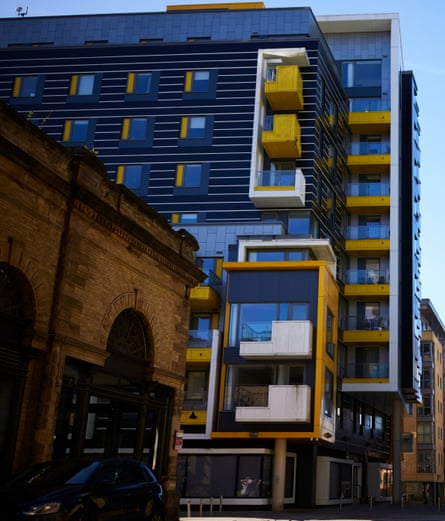There are a range of schemes geared towards helping first-time buyers. Here’s the lowdown on the main ones.
The lifetime Isa
Launched in 2017, this is a savings account aimed at helping you buy your first home (or save for later life). It lets savers pay in up to £4,000 each year until they are aged 50. The big plus is that the government will add a 25% bonus, up to a maximum of £1,000 a year. You must be aged between 18 and 40 to open one.
The property bought with the savings must cost £450,000 or less, which may prove a challenge in some parts of the country. Savers who withdraw their money to spend on a property above the price cap face a 25% charge for an unauthorised withdrawal. This charge is designed to recover the government bonus but it also controversially grabs some of the original investment.
Shared ownership

You buy a share of a new-build or resale property offered through the scheme – usually between 25% and 75%, though occasionally as little as 10% – and pay rent on the rest. If it is a flat, you will also face a service charge for the maintenance of the building.
Because you only need a mortgage for the share you are buying, the deposit and loan will be smaller than for a standard home purchase. The rent is less than the rate charged on the open market – typically about 2.75% of the value of the share the landlord owns a year – although you need to factor in future increases.
However, some owners have encountered problems with escalating service charges, allegedly poor-quality building maintenance, costly lease extension processes and restrictions on the lease that can make selling up difficult.

A big advantage is that you have the option to buy further shares – up to 100% ownership in most instances – if you wish. This is known as staircasing.
There are different rules in England, Scotland, Wales and Northern Ireland. In England, to be eligible, you need to have an annual household income of less than £80,000 – or less than £90,000 in London. Some housing associations and local authorities have their own terms regarding who is prioritised and affordability. The Share to Buy website has a tool that lets you search for shared ownership properties. There’s a separate search tool for Londoners.
Rent to buy
Under this scheme, tenants in England can rent a home typically at 20% below the local market rent to help them save for a deposit. To be eligible, you must have a job, be a first-time buyer and be able to pay rent and save for a deposit at the same time.
If you live in England (excluding London), you can search for organisations that have rent-to-buy homes using the shared ownership scheme service. The initial tenancy agreement will be for up to two years but it may be possible to extend it if you need more time to save for your deposit.
Tenants can buy their home as soon as they have saved up a deposit and can get a mortgage.
Rent to buy is not available in Scotland. The rent to own scheme in Wales has closed to new landlords but some properties may still be available. There is a different scheme in Northern Ireland.
The Guardian has previously featured the “affordable rent-to-buy” provider Rentplus, which is a private company that works with local authorities and housing providers and caters for people in England. Its residents pay an affordable rent over a period of between five and 20 years while they save up a deposit.
London living rent

This is the capital’s version of rent to buy. To be eligible, applicants must live or work in London, live in private rented accommodation (or have some other kind of formal tenancy) or with friends and family, have a maximum household income of £60,000 and not own a home.
They must also be unable to buy in the area where they live, including through shared ownership.
The rent you pay will vary according to where you live – the average for a two-bedroom London living rent home in 2024-25 is about £1,240 a month.
The discounted rents mean these properties are in high demand and often snapped up quickly. Tenancies are usually offered for a minimum of three years, and residents are encouraged to buy their home within 10 years.
At the time of writing, London living rent properties being advertised included new-build homes in Barking, east London, where the monthly rent starts at £1,154 for a one-bedroom property, rising to £1,400 for three bedrooms. In comparison, there was one three-bedroom property in the area listed on Rightmove at £1,650 a month but most were well above £2,000.
First Homes
With this government scheme, only available in England, if you are a first-time buyer, you may be able to buy a home for 30-50% less than its market value. Unlike with shared ownership, there is no rent to pay.
You can look for new homes in your area that are advertised by developers or estate agents that participate in the scheme. Developers offer these with at least 30% of the market value taken off the price.
The property has to be a new-build or a home you buy through an estate agent that someone else bought before via the scheme. To be eligible, you need to not earn more than £80,000 a year before tax (£90,000 in London). If you are buying with someone else, you must both be first-time buyers and your joint income cannot be more than £80,000. Individual councils may have additional requirements.
New-build First Homes cannot cost more £250,000 – or more than £420,000 in London – after the discount has been applied.
